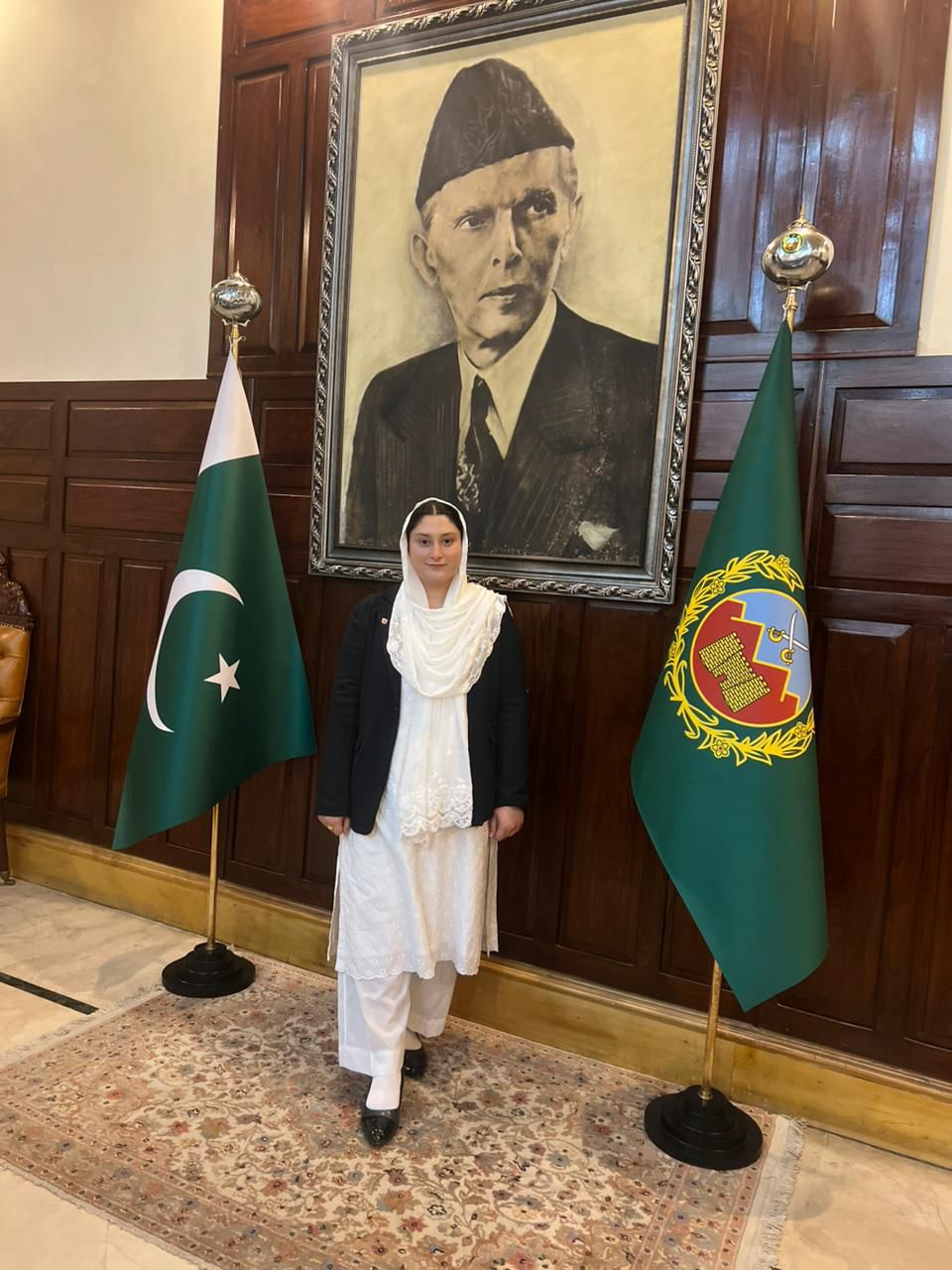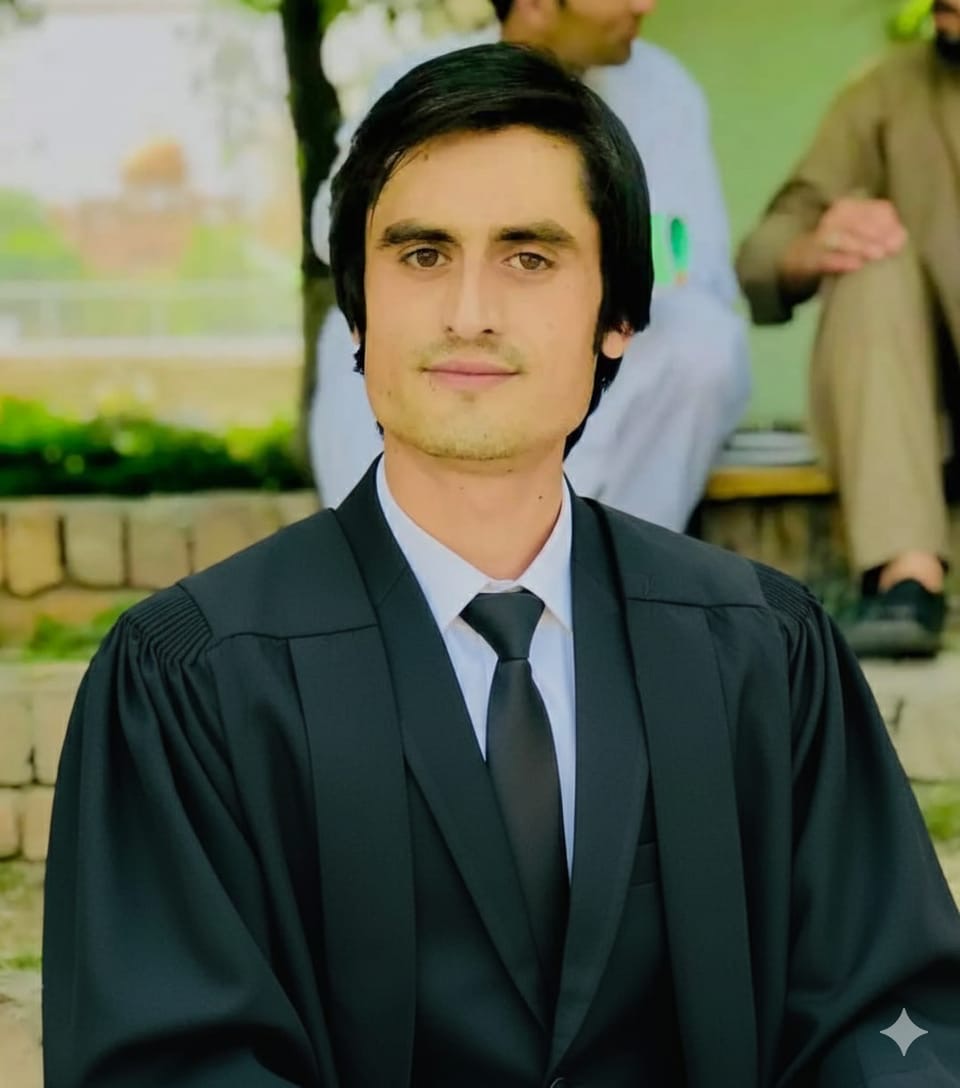Best Family Lawyers in Peshawar
Share your needs with us, get contacted by law firms.
Free. Takes 2 min.
Free Guide to Hiring a Family Lawyer
List of the best lawyers in Peshawar, Pakistan
Pakistan Family Legal Questions answered by Lawyers
Browse our 33 legal questions about Family in Pakistan and read the lawyer answers, or ask your own questions for free.
- Wife is very toxic abusive manipulative from 10 years
- Hello, My wife does not allow me to work outside the home. She constantly makes calls, levels false accusations, and blames me for everything. She can involve anyone—her sister, landlords, or anyone she can use—to manipulate or abuse me. If I am away from home for more than an hour,... Read more →
-
Lawyer answer by Azam Ch Law Associates
It depends with age and gender of kids. Incase of male kids you can secure custody if they are about 12 or older but if they are too young you can't take them. Ultimately you are responsible for their growth
Read full answer - Child visiting rights and joint custody case
- Assalam o Alaikum Here we have mutually agreed on separation although I have initiated this and then the both families Punchayat involved and we returned Dowry articles even a single bangle and they assured us they will have no issue regarding visiting my son and they also write this statement... Read more →
-
Lawyer answer by Muhammad Ali Law Associates
In response to above, note that even though both families agreed on separation, dowry was returned and statements were recorded. These things do not create enforceable custody or visitation rights because custody and visitation are always decided by the Guardian...
Read full answer - Khula from an overseas husband
- Aslamoalikum. What is the process or khula and divorce case taken from husband who lives in France... What is the time duration and what is time duration for embassy attestation
-
Lawyer answer by Qadeer Ahmad Siddiqi Law Associates
Wa-Alaikum-Salam. Thank you for your message. If your husband is living in France, you can still obtain khula or divorce in Pakistan through the Family Court in your city. The court issues a decree of khula, which is then sent...
Read full answer
About Family Law in Peshawar, Pakistan
Family law in Peshawar, Pakistan, is primarily governed by Islamic principles and the Pakistani Family Laws. These laws cover a range of issues such as marriage, divorce, inheritance, child custody, and guardianship. With the cultural diversity in Peshawar, family law often involves both legal and religious considerations. The legal system aims to protect the rights of all family members, ensuring fairness and justice while also respecting cultural and religious values.
Why You May Need a Lawyer
There are numerous situations where you may require legal help in family-related matters in Peshawar. Common scenarios include:
- Marriage Contracts: A lawyer can assist with drafting and understanding marriage contracts, ensuring that both parties' rights and obligations are clear.
- Divorce Proceedings: Legal assistance can help navigate the complexities of divorce, including settlement agreements and alimony.
- Child Custody and Guardianship: Lawyers can aid in establishing custody arrangements that are in the best interest of the child.
- Inheritance Claims: A legal professional can help resolve disputes regarding inheritance and the distribution of assets.
- Adoption Processes: Assistance is often needed to navigate the legal requirements and documentation for adoption.
Local Laws Overview
The key aspects of family law in Peshawar are influenced by local cultural practices and religious laws. Here are some pertinent points:
- Marriage and Divorce: Governed by the Muslim Family Laws Ordinance, this includes the legal registration of marriages and formal procedures for divorce.
- Child Custody: Decisions are typically made in the child’s best interest, often considering the child's welfare and sometimes the mother's caretaking capabilities.
- Inheritance Law: Islamic inheritance laws are applied, which dictate the distribution of the deceased's estate among heirs.
- Dowry and Maintenance: Laws exist to protect women’s rights regarding dowry and ensure financial support after divorce.
- Guardianship: Legal guardianship rights require formal procedures and documentation to ensure children's well-being.
Frequently Asked Questions
What is the legal age for marriage in Peshawar?
The legal age for marriage is 18 for males and 16 for females. Consent from the guardians may be required if the parties marrying are below 18.
How can I file for divorce?
Divorce can be initiated by filing a written notice with the local Union Council. Legal proceedings involve arbitration processes to attempt reconciliation before a divorce is finalized.
What are the grounds for child custody disputes?
Child custody is generally decided based on the child’s welfare. Factors include the child’s age, the parent's ability to provide a stable environment, and, where applicable, the child’s preference.
Are prenuptial agreements legally binding in Peshawar?
Prenuptial agreements can be legally binding if they adhere to the governing laws and are properly documented and registered.
How is inheritance distributed among family members?
Inheritance is distributed according to Islamic law, which provides specific shares to spouses, children, and other relatives.
Can I change my child’s legal guardian?
Changing a child's guardian requires legal approval, ensuring that the change serves the best interest of the child.
What should I do if there is a dispute over dowry?
Legal claims regarding dowry can be made in family courts if disputes arise. It's advised to seek legal counsel to navigate this process.
Is there legal aid available for women in family disputes?
Yes, there are legal aid services available for women facing family disputes. Governmental and non-governmental organizations often provide such support.
What are the laws regarding domestic violence?
Domestic violence is criminalized under Pakistani law, and victims can seek protection orders through Family Courts to ensure their safety.
Can non-Muslims get married in Peshawar?
Yes, non-Muslims can get married in Peshawar under the respective personal laws applicable to their religion or civil laws.
Additional Resources
For those seeking further information or assistance, you may consider reaching out to:
- Local Legal Aid Centers: Offer free or subsidized legal services to those in need.
- The Family Court in Peshawar: Handles cases related to family law and can provide procedural guidance.
- NGOs focusing on Women’s Rights: Provide support and advocacy for women facing family legal issues.
- Peshawar Bar Association: Can refer you to qualified family law attorneys.
Next Steps
If you require legal assistance concerning family law in Peshawar, consider the following steps:
- Consult with a Lawyer: Look for a lawyer specializing in family law to discuss your situation.
- Gather Documentation: Prepare all necessary documents related to your case, such as marriage certificates or custody orders.
- Explore Mediation: Consider mediation as an initial step to potentially resolve disputes amicably.
- Visit the Local Family Court: If necessary, file your case and attend court hearings with proper legal guidance.
- Seek Support Services: Utilize available support networks for emotional and legal assistance throughout the process.
Lawzana helps you find the best lawyers and law firms in Peshawar through a curated and pre-screened list of qualified legal professionals. Our platform offers rankings and detailed profiles of attorneys and law firms, allowing you to compare based on practice areas, including Family, experience, and client feedback.
Each profile includes a description of the firm's areas of practice, client reviews, team members and partners, year of establishment, spoken languages, office locations, contact information, social media presence, and any published articles or resources. Most firms on our platform speak English and are experienced in both local and international legal matters.
Get a quote from top-rated law firms in Peshawar, Pakistan — quickly, securely, and without unnecessary hassle.
Disclaimer:
The information provided on this page is for general informational purposes only and does not constitute legal advice. While we strive to ensure the accuracy and relevance of the content, legal information may change over time, and interpretations of the law can vary. You should always consult with a qualified legal professional for advice specific to your situation.
We disclaim all liability for actions taken or not taken based on the content of this page. If you believe any information is incorrect or outdated, please contact us, and we will review and update it where appropriate.
Browse family law firms by service in Peshawar, Pakistan
Peshawar, Pakistan Attorneys in related practice areas.













